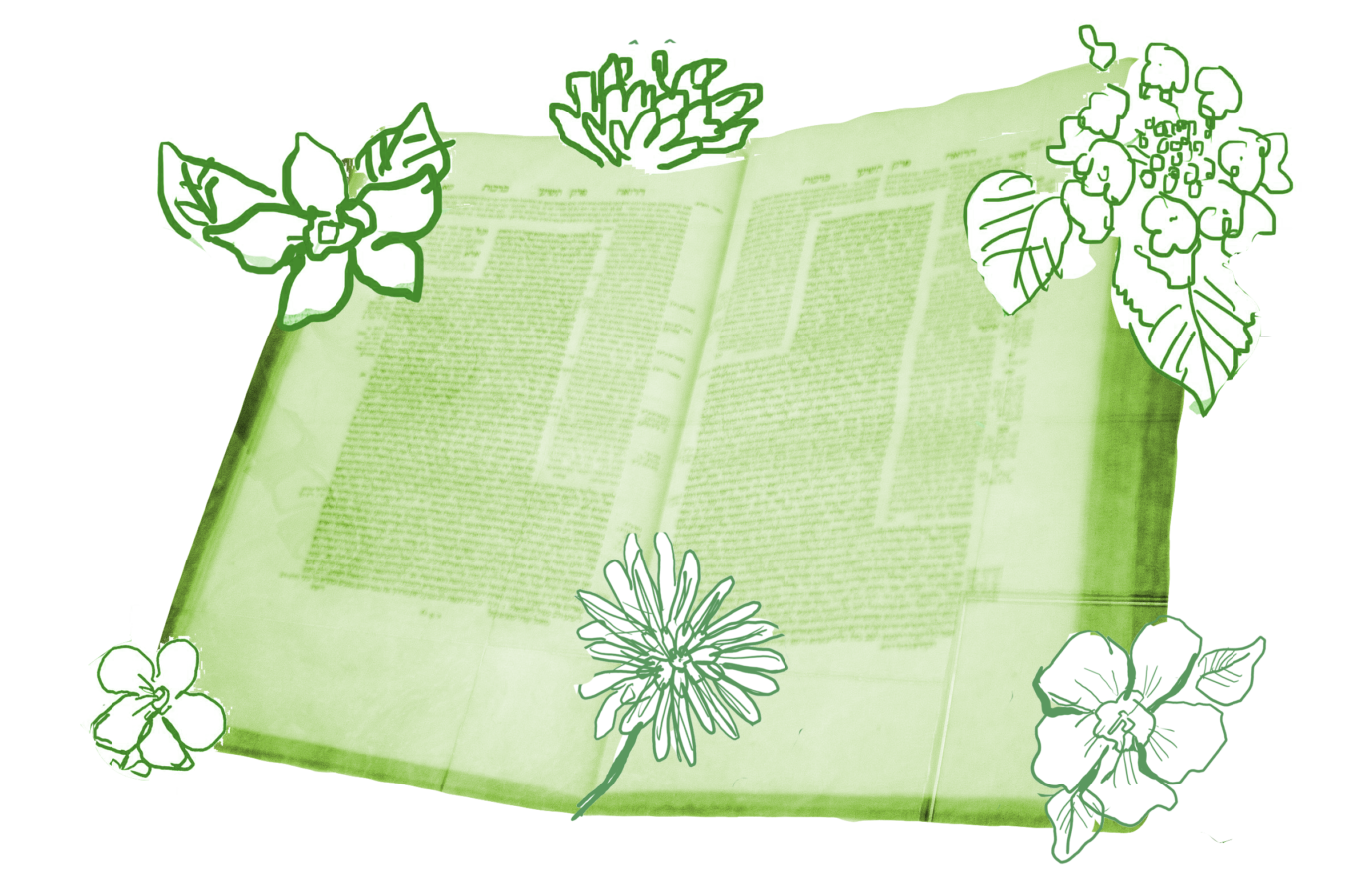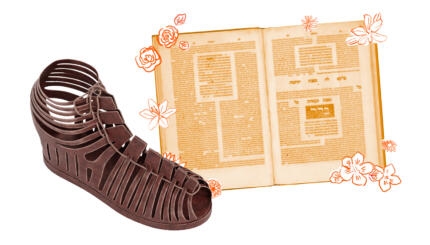Yevamot 96 comments on three mishnahs that follow each other in quick succession. They discuss rules concerning a yavam as young as nine years and one day old who has sex with his yevama. One particular concern of our daf is his status as the rightful yavam when he has other brothers who could claim that status as well.
We won’t dwell here on the repugnant idea of an underage boy being sexually involved with his sister-in-law, even if our sages may only have used it as a theoretical minimum age for yibbum (levirate marriage). We’ll jump ahead to the bottom of today’s daf, where we encounter a story of what happened when Rabbi Yohanan heard that his student, Rabbi Elazar, had quoted his teaching in the academy without attribution:
Rabbi Elazar went and said this halakhah in the study hall, but he did not state it in the name of Rabbi Yohanan. Rabbi Yohanan heard and became angry.
As we’ve seen before, the rabbis thought it was of utmost importance to name the sources for each and every teaching. Rabbi Yohanan’s anger, therefore, is not entirely surprising.

Help us keep Jewish knowledge accessible to millions of people around the world.
Your donation to My Jewish Learning fuels endless journeys of Jewish discovery. With your help, My Jewish Learning can continue to provide nonstop opportunities for learning, connection and growth.
Rabbi Yohanan’s students, Rabbi Ami and Rabbi Asi, visit and attempt to diffuse the situation by reminding him of an incident in which Rabbi Elazar and another of Rabbi Yohanan’s students, Rabbi Yosei, got into a debate over a matter of halakhah that got so heated, they ended up tearing a Sefer Torah they had been holding at each end. (Whether this was literal or metaphorical tearing is left up to reader interpretation.)
This warning about the dangers of excessive anger falls on deaf ears. The students’ attempt to calm their teacher’s anger backfires and Rabbi Yohanan becomes even more enraged, accusing them of putting Elazar (his student) on the same level of authority as himself and Rabbi Yosei (his colleague).
Into this hot mess enters Rabbi Yaakov bar Idi, who also takes a stab at calming Rabbi Yohanan. He deftly appeals to Yohanan’s ego by deploying a complimentary comparison:
Rabbi Ya’akov bar Idi visited Rabbi Yoḥanan and said to him:“As God commanded His servant Moses, so did Moses command Joshua, and so did Joshua, he left nothing undone of all that the Lord commanded Moses.” (Joshua 11:15)
Now did Joshua, with regard to every matter that he said, say to the Jews: ‘Thus Moses said to me’? Rather, Joshua would sit and teach Torah without attributing his statements, and everyone would know that it was from the Torah of Moses. So too, your disciple Rabbi Elazar sits and teaches without attribution, and everyone knows that his teaching is from your instruction.
Rather than warn or chastise, RabbiYaakov leans into flattery:
You, Rabbi Yohanan, are our iteration of Moses. Everyone knows that Elazar is quoting you, even when he doesn’t quote you by name. You have nothing to fear.
This appeases Rabbi Yohanan who, in short order, chides his other students, Rabbis Ami and Asi, for not possessing Rabbi Yaakov’s diplomatic skills.
If you’re familiar with talmudic literature, the contours of this interaction might not come as a surprise. Rabbi Yohanan is widely known for being dangerously hypersensitive and irascible. Yet our story, and Rabbi Yohanan’s larger story, goes deeper. The Talmud continues with a question: Why was Yohanan so angry about Eleazar not quoting his teachings by name? A quotation of Rabbi Yohanan’s on the top of tomorrow’s page provides us with a clue:
Rabbi Yohanan said in the name of Rabbi Shimon ben Yohai: With regard to any deceased Torah scholar in whose name a matter of halakhah is taught in this world, his lips mouth the words in the grave, as though he is talking …
Yohanan’s anger flows not so much from his ego as from his anguish, for, as we learn elsewhere, he lost (at least) ten sons. In the absence of his precious children, who would carry on his memory and his legacy in this life and after death if not his students who quote his teachings by name? Who would grant him the privilege of mouthing his teachings “in the grave” — that is, in the next life — if not those students when they tell others, “This was taught to me by Rabbi Yohanan”?
Yohanan’s story on today’s page is subtle and haunting — a great deal swims below the surface. The daf’s technical preoccupation is the relationship between one yavam and his brothers, all potential yevamim, all possible protectors of each other’s memories and legacies should one of them die without a male heir to carry on his name.
These technical concerns hint at Rabbi Yohanan’s personal pain. Having lost so many of his own heirs, all of them brothers to one another, Yohanan seeks solace in the only other sources of immortality he has: his students and his Torah.
Read all of Yevamot 96 on Sefaria.
This piece originally appeared in a My Jewish Learning Daf Yomi email newsletter sent on June 11th, 2022. If you are interested in receiving the newsletter, sign up here.



